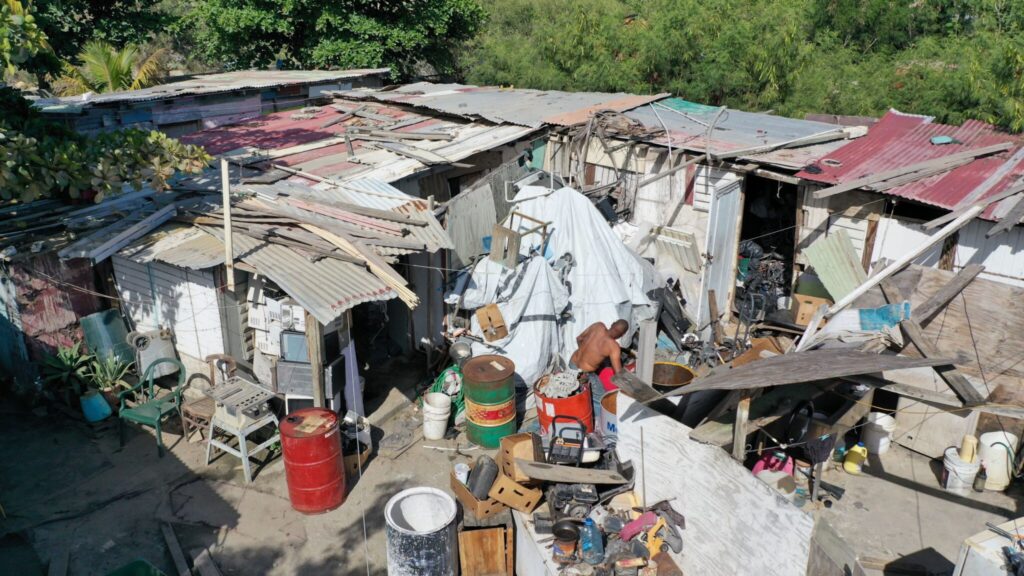PHILIPSBURG — Around the landfill just above Sint Maarten, about two hundred people live in ramshackle shacks and shipping containers.
The Dutch government has made funding available to gentrify the area, but the work cannot begin until all of the residents have been forced out.
There is no clear plan yet about where the residents should go. They live in absolute uncertainty.
Most of the residents are illegal immigrants and fear for their future now that the area where they live is under considerable scrutiny.
The Dutch National Recovery Program Bureau (NRPB) has been managing reconstruction projects since January 2019. In 2017, Sint Maarten was dealt a devastating blow by hurricane Irma. The island was largely decimated and reconstruction projects have not yet been completed even as of today.
One of the housing communities exists on the edge of a garbage dump.
The NRPB said it plans to upgrade the landfill and bring up to world standards all municipal waste dumps.
The local government wants to bring better waste management and at the same time improve the health and safety of sanitary waste employees and local residents.
According to the NRPB, it has become clear that the makeshift housing community needs to be moved away from the landfill. That way, the government can effect changes to the landfill that will benefit the health and safety of all residents of Sint Maarten.
One of the considerations of the NRPB is that it is mandated by Dutch law to ensure that residents who live next to the landfill don’t become worse off after they are forcibly removed from the site.
“A ‘Resettlement Action Plan’ is being set up by order of the NRPB (National Recovery Program Bureau),” Mark Williams, interim Secretary-General of the Ministry of Housing, Spatial Planning, Environment and Infrastructure (VROMI), said. “When this plan is on the table, we will know how we are going to handle the relocation of the community at and around the dump.”
‘No houses for illegal immigrants‘
Claudius Buncamper, Member of Parliament for the United Sint Maarten Party, is vehemently against the Resettlement Action Plan and wants the shacks to be demolished.
“Many people on Pond Island are illegal,” Buncamper said. “We don’t even have homes for our own people.”
Ermitania Pascual has lived on Pond Island for over fifteen years.
“Eleven people who live here have a Dutch passport, including me,” Pascual said. “But all people who live here are Dutch. They were born here or have lived here for years.”
No response to illegally-leased land
Other Pond Islanders, who wish to remain anonymous, say they pay rent to local landlords, despite living on government-owned land.
When asked about which parts of the land on Pond Island would be leased to the squatters, the government will not answer.
There is no fixed date yet for the completion of the Resettlement Action Plan.
The people there remain in perpetual limbo.

